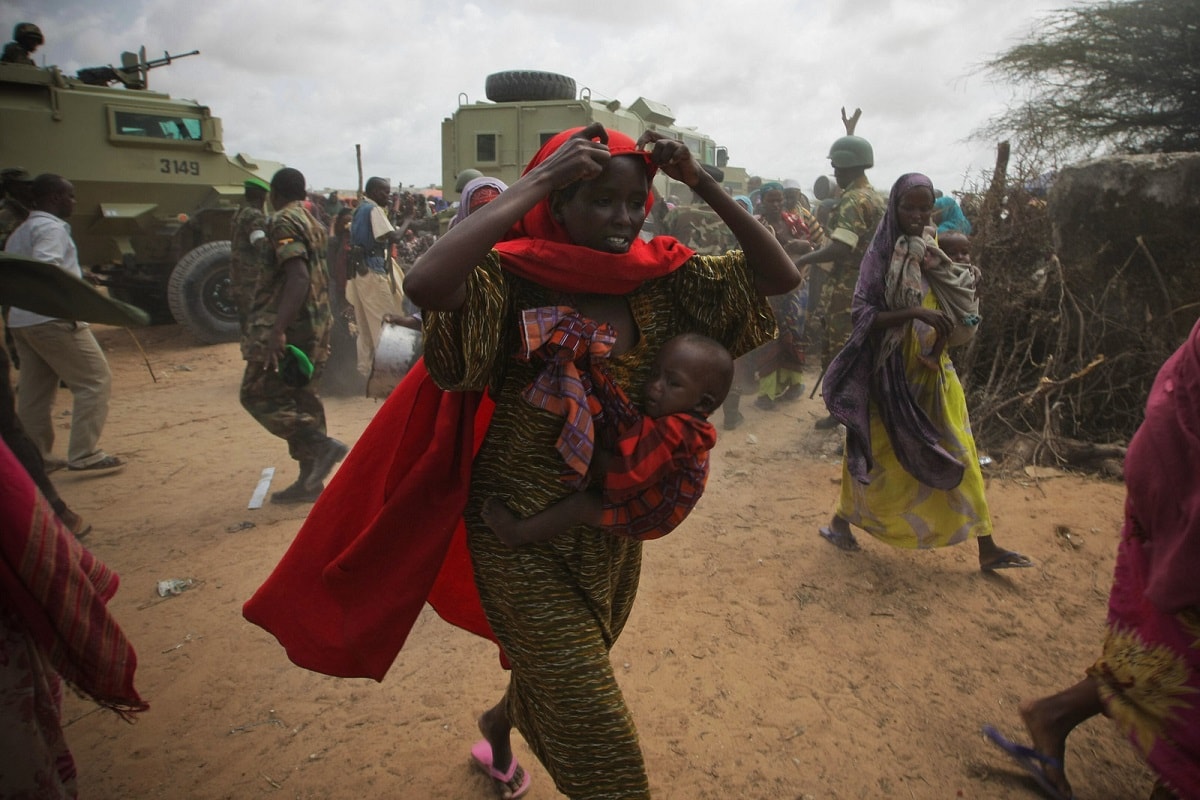On October 25, Somalis lined up to vote in the Qardho, Eyl, and Ufeyn districts of Puntland, Somalia’s northeastern state by the thousands. Just as when Iraqis held its first real vote in 2005 after decades of Saddam Hussein’s dictatorship, elderly citizens long denied their fundamental right to have a say in their own governance came to the polling places early. Lines began to form at 3 am even though voting did not begin until 6 am. Pregnant women, breastfeeding mothers, and toddlers accompanying them stood for hours in line, albeit enjoying the festive atmosphere.
The Somalis casting ballots knew they were taking part in history, even if they were only electing local councils. The polls marked the first time in more than a half-century that Somalis have had the opportunity to participate in one-man, one-vote elections for Somalia’s future. (Puntland’s neighbor Somaliland has held repeated elections, most recently on May 31, but has not considered itself part of Somalia since 1991). Nine political associations competed in the Puntland polls.
Last week’s elections are just the beginning. Puntland acknowledged they were experimental (tijaabo). Under the stewardship of Said Abdullahi Dani, Puntland’s reformist president, the state plans similar elections in its remaining districts; the Transitional Puntland Electoral Commission chose to begin with three districts as a dry run to work out any kinks in the system. Representatives from the United Nations Mission to Somalia, Western embassies, other Somali federal member states, the Somali government in Mogadishu, and local civil society organizations observed.
The importance of the elections extend beyond Puntland. While the international community has for a decade sought to return Somalia to one-man, one-vote elections, Somalia’s incumbent president Mohamed Abdullahi Farmaajo has sought to undermine the process throughout the country. Donald Yamamoto who, until earlier this year was the U.S. ambassador in Mogadishu, enabled Farmaajo’s return to dictatorship by channeling billions of dollars of aid through Farmaajo in the belief that centralization would enable patronage and build support.
Farmaajo, however, prevented its distribution onward to Somalia’s federal states and often used donor funds to undermine political rivals rather than build the country. Too often, the State Department remained silent as Farmaajo turned his back on a peace and transition process predicated on federalism.
Somalis did not miss the symbolism that as residents of the three Puntland districts voted, Farmaajo was killing people in Guriceel, where last week he dispatched a U.S.-trained elite force to fight not the al-Qaeda-affiliated al-Shabaab, but rather the most effective indigenous group fighting the Islamist radicals and terrorists.
Rather than celebrate the Puntland elections, meanwhile, Secretary of State Antony Blinken was silent. So too was the U.S. Embassy in Mogadishu, which apparently did not join their European counterparts to observe the elections, nor did it even celebrate them. The embassy’s only tweet on the day of the first Somali elections in more than a half century? Celebrating “a rundown of popular memes” in the Library of Congress, something about as relevant to Somalis as a celebration of jungle botany would be to Greenland.
Both President Biden and Secretary of State Blinken have said diplomacy is back but, at least in Africa, they appear to neglect it. This is unfortunate. Farmaajo has consistently sought to undermine real elections in an increasing bid to hold onto power. To acquiesce to the notion that one-man, one-vote elections are a bridge too far for Somalia despite the hundreds of millions of dollars dispatched to Somalia for that purpose is to enable Farmaajo’s corrosive plan. Somaliland has repeatedly shown there is no cultural impediment to elections and they can be held—and secured with biometric iris scans—at a fraction of the price Mogadishu demands. Puntland’s successful elections—and its active planning for more—reinforces that Somaliland need not be the exception, but its established electoral democracy could be the rule in Puntland, Jubaland, the South West State, and Somalia’s other federal member states.
Dictatorship is not the answer to Somalia; the dictatorship of Farmaajo’s uncle Siad Barre dictatorship was the reason for Somalia’s collapse. Somalis want democracy for simple reasons: it provides a means to hold their government accountable and to ensure that their elected leaders grow their country rather than only offshore bank accounts.
Rather than ignore or undermine Somali democracy, it is not too late for the State Department should celebrate last week’s events in Puntland, financially support their continuation, and encourage other federal member states to move forward with their own one-man, one-vote elections.
Now a 1945 Contributing Editor, Michael Rubin is a Senior Fellow at the American Enterprise Institute (AEI).

